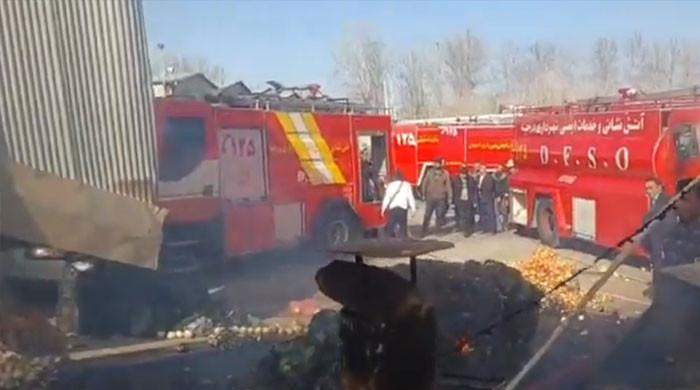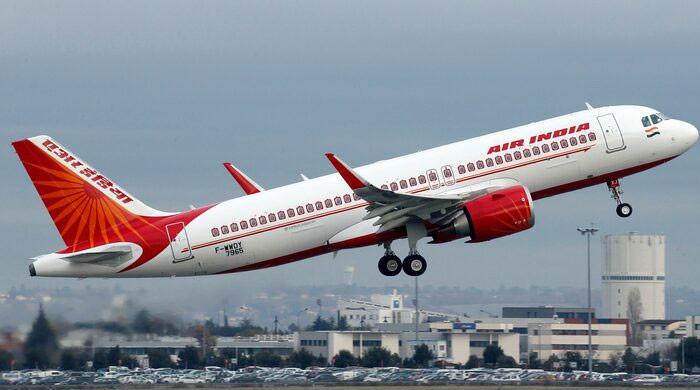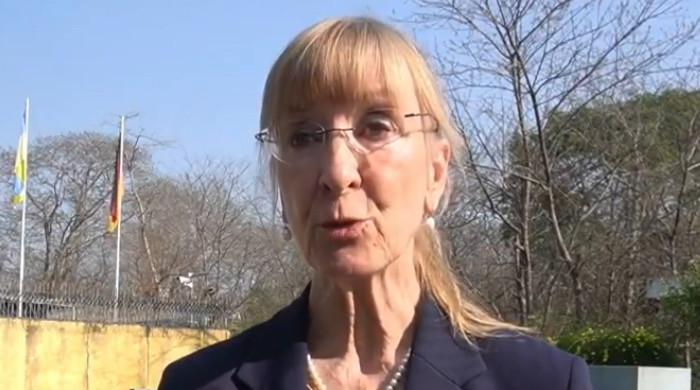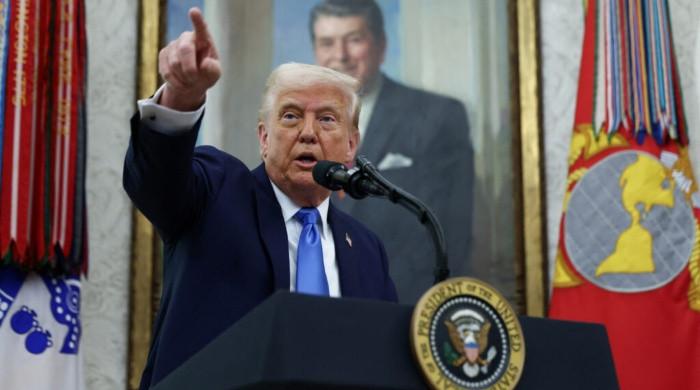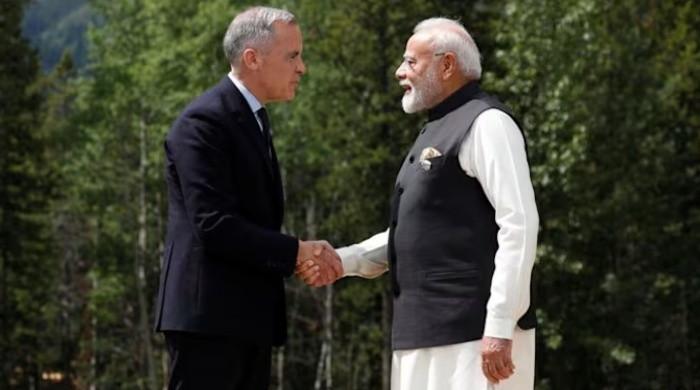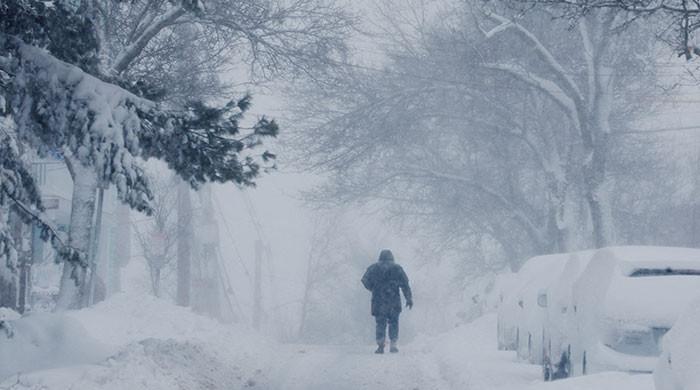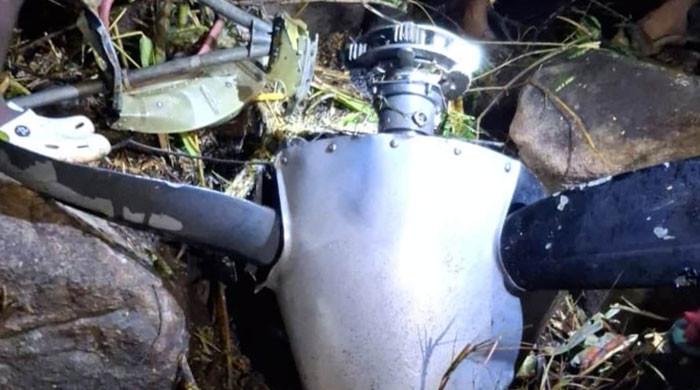Why are Thailand and Cambodia fighting along their border?
Tensions begin rising following killing of a Cambodian soldiers during a brief exchange of gunfire
July 25, 2025
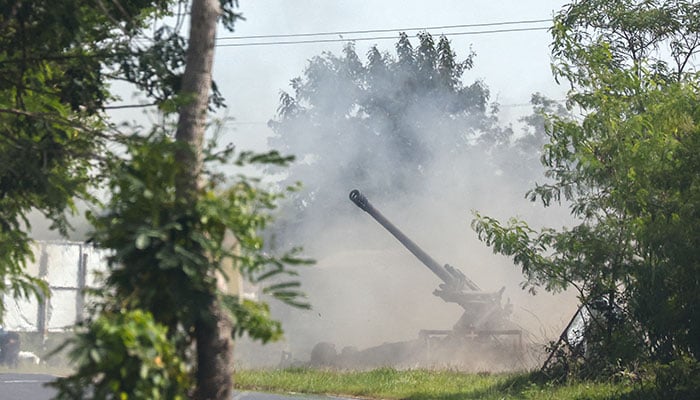
Thailand and Cambodia are engaged in their worst fighting in over a decade, exchanging heavy artillery fire across their disputed border, with at least 16 people killed and tens of thousands displaced.
Tensions began rising between the Southeast Asian neighbours in May, following the killing of a Cambodian soldier during a brief exchange of gunfire, and have steadily escalated since, triggering diplomatic spats and now, armed clashes.
What is the current situation?
Clashes broke out between the two countries early on Thursday along a disputed area abutting an ancient temple, rapidly spilling over to other areas along the contested frontier and heavy artillery exchanges continued for a second straight day.
Thailand recalled its ambassador to Phnom Penh on Wednesday and expelled Cambodia's envoy, in response to a second Thai soldier losing a limb to a landmine that Bangkok alleged had been laid recently by rival troops. Cambodia called that accusation baseless.
Both sides accuse each other of firing the first shots that started the conflict on Thursday, which have so far claimed the lives of at least 15 civilians, most of them on the Thai side.
Cambodia has deployed truck-mounted rocket launchers, which Thailand says have been used to target civilian areas, while the Thai armed forces dispatched US-made F-16 fighter jets, using one to bomb military targets across the border.
Some 130,000 people have been evacuated from border areas in Thailand to safer locations, while some 12,000 families on the Cambodian side have been shifted away from the frontlines, according to local authorities.
Where does the dispute originate?
Thailand and Cambodia have for more than a century contested sovereignty at various undemarcated points along their 817km land border, which was first mapped by France in 1907 when Cambodia was its colony.
That map, which Thailand later contested, was based on an agreement that the border would be demarcated along the natural watershed line between the two countries.
In 2000, the two countries agreed to establish a Joint Boundary Commission to peacefully address overlapping claims, but little progress has been made towards settling disputes.
Claims over ownership of historical sites have raised nationalist tension between the two countries, notably in 2003 when rioters torched the Thai embassy and Thai businesses in Phnom Penh over an alleged remark by a Thai celebrity questioning jurisdiction over Cambodia's World Heritage-listed Angkor Wat temple.
What were previous flashpoints?
An 11th-century Hindu temple called Preah Vihear, or Khao Phra Viharn in Thailand, has been at the heart of the dispute for decades, with both Bangkok and Phnom Penh claiming historical ownership.
The International Court of Justice awarded the temple to Cambodia in 1962, but Thailand has continued to lay claim to the surrounding land.
Tension escalated in 2008 after Cambodia attempted to list the Preah Vihear temple as a Unesco World Heritage site, leading to skirmishes over several years and at least a dozen deaths, including during a weeklong exchange of artillery in 2011.
Two years later, Cambodia sought interpretation of the 1962 verdict and the ICJ again ruled in its favour, saying the land around the temple was also part of Cambodia and ordering Thai troops to withdraw.
What’s behind recent troubles?
Despite the historic rivalry, the current governments of Thailand and Cambodia enjoy warm ties, partly due to the close relationship between their influential former leaders, Thailand's Thaksin Shinawatra and Cambodia's Hun Sen.
But nationalist sentiment has risen in Thailand after conservatives last year questioned the government's plan to negotiate with Cambodia to jointly explore energy resources in undemarcated maritime areas, warning such a move could risk Thailand losing the island of Koh Kood in the Gulf of Thailand.
Tensions also rose in February when a group of Cambodians escorted by troops sang their national anthem at another ancient Hindu temple that both countries claim, Ta Moan Thom, before being stopped by Thai soldiers.
An effort by then Thai premier Paetongtarn Shinawatra, Thaksin's daughter, to de-escalate the situation in a call last month with Hun Sen spectacularly backfired after a recording of the conversation was initially leaked and later released in full by the Cambodian leader.
In the call, the 38-year-old prime minister appeared to criticize a Thai army commander and kowtow to Hun Sen, drawing public fury and a complaint from a group of senators, which led to her suspension by a court order on July 1.
Have there been any resolution efforts?
After the May 28 clash, both countries quickly promised to ease tension, prevent more conflict and seek dialogue via their joint border commission at a June 14 meeting.
The neighbours have issued diplomatically worded statements committing to peace while vowing to protect sovereignty, but their militaries have been mobilising near the border.
Cambodia, meanwhile, said existing mechanisms were not working and it planned to refer disputes in four borders areas to the ICJ to settle "unresolved and sensitive" issues that it said could escalate tensions.
Thailand has not recognised the ICJ's rulings on the row and wants to settle it bilaterally.
Since Thursday's clashes, Cambodia has written to the United Nations Security Council, urging the body to convene a meeting to stop what it describes as "unprovoked and premeditated military aggression" by Thailand.
Thailand, on the other hand, wants to resolve the conflict through bilateral negotiations but says talks can only take place after Cambodia ceases violence.





